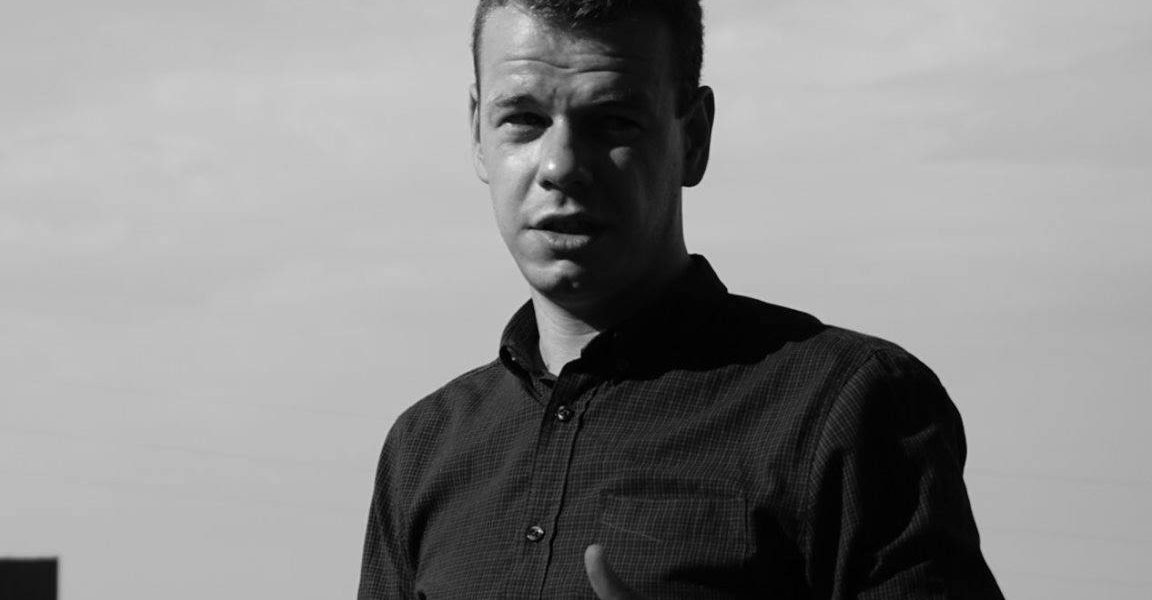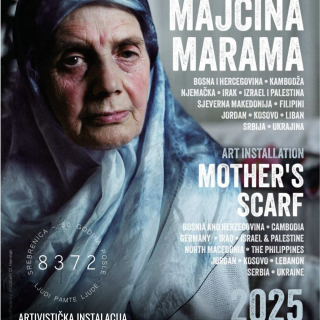The Ministry of Human and Minority Rights and Social Dialogue of the Government of Serbia announced on July 5th that the European Commission against Racism and Intolerance of the Council of Europe adopted the Report on Serbia within the sixth monitoring cycle.[1]
The European Commission against Racism and Intolerance (ECRI), established by the Council of Europe, is an independent human right monitoring body specialized in issues related to combating racism, discrimination (based on “race”, ethnic/national origin, color, citizenship, religion, language, sexual orientation, and gender identity), xenophobia, antisemitism, and intolerance. ECRI consists of independent and impartial members appointed based on their moral authority and recognized expertise in combating racism, xenophobia, antisemitism, and intolerance. As part of its statutory activities, ECRI monitors countries, analyzing the situation in each member state of the Council of Europe regarding racism and intolerance and providing suggestions and recommendations to address identified problems. ECRI’s country monitoring covers all member states equally and operates in five-year cycles. Reports from the first cycle were completed by the end of 1998, the second by the end of 2002, the third by the end of 2007, the fourth in early 2014, and the fifth in late 2019. Work on the sixth cycle reports began at the end of 2018.[2]
The report states that Roma and other ethnic minorities are particularly exposed to hate rhetoric. An example of hate speech towards Roma in Serbia is the statement by the Mayor of Belgrade, Aleksandar Šapić, in March 2023, when he said that Roma live off theft and do not want to adhere to “civilized” standards.[3]
Besides hate speech, despite being the third-largest national minority in Serbia, Roma face multiple discriminations. This is highlighted in a 2023 survey by the European Roma Rights Centre, cited by ECRI in its report on Serbia, which states that 80% of Roma respondents believe that police officers have prejudices against them, and 10% believe that judges do as well. Additionally, 50% of interviewed lawyers and 60% of interviewed judges suggested that criminal justice professionals are likely to assume Roma defendants are probably guilty.[4]
The impunity for the murder of 27 Roma civilians and the lenient sentences for sexual violence and sexual slavery against Roma women from the village of Skočić in July 1992 during the Bosnian War are the most illustrative examples of how members of this minority community remain legally invisible to the juctice system in Serbia, particularly in the context of prosecuting wartime atrocities. Modern forms of exploitation, race-based violence, and systemic discrimination against Roma are possible precisely because of the impunity and denial of wartime violence from both World War II and the wars of the 1990s.
According to the Humanitarian Law Center (HLC), the first indictment for the crime in the village of Skočić (Zvornik municipality, BiH) was filed in April 2010 against Sima Bogdanović, commander of the volunteer unit “Sima’s Chetniks,” and Damir Bogdanović, Zoran Stojanović, Tomislav Gavrić, and Đorđe Šević, members of that unit. In February 2011, an indictment was also filed against Zoran Alić, and in December 2011, against Zoran Đurđević and Dragana Đekić. The indictment was amended on September 1, 2014, to include Damir Bogdanović, Tomislav Gavrić, Đorđe Šević, Zoran Alić, Zoran Đurđević, and Dragana Đekić, as Sima Bogdanović and Zoran Stojanović had passed away in the meantime.[5]
On February 22, 2013 in a first-instance verdict the Higher Court in Belgrade sentenced Zoran Stojanović and Zoran Đurđević to 20 years in prison each, Tomislav Gavrić and Zoran Alić to 10 years each, Dragana Đekić and Đorđe Šević to five years each, and Damir Bogdanović to two years in prison.
This verdict established that on July 12, 1992, members of “Sima’s Chetniks” first destroyed the village mosque with explosives upon their arrival in Skočić. They then gathered all the Roma villagers they found in one house, including children, women, and adult men, confiscated their valuables, and beat them with hands, feet, rifle butts, and other objects, killing Arif Nuhanović (58) on the spot. At the same time, certain members of the unit raped the protected witnesses “Alpha,” “Beta,” and “Gamma.” Then they drove them in a truck to the village of Malešić, where the individuals “Alpha,” “Beta,” and “Gamma” were taken aside and directed into the house with other members of the unit. The remaining Roma were taken to a pit in Hamzići, near the village of Šetići, where they were individually pulled from the vehicle and killed with knives and firearms, with their bodies thrown into the pit, followed by a bomb. Twenty-seven Roma civilians were killed in this way. An eight-year-old boy, Zijo Ribić, despite being severely injured, managed to escape from the pit. The three protected witnesses were kept as slaves by “Sima’s Chetniks” for several months, during which time they were raped, beaten, humiliated, and forced to serve the members of the unit.[6]
HLC reports on war crimes trials note that the Belgrade Court of Appeals overturned this verdict in May 2014, sending the case back for retrial and halting the proceedings against Zoran Stojanović, who had meanwhile passed away. In the retrial, the Higher Court in Belgrade delivered an acquittal for all defendants in June 2015, finding that the prosecution had failed to prove the allegations in the indictment during the trial.[7]
On March 28, 2018, the Belgrade Court of Appeals confirmed the acquittal of defendants Damir Bogdanović, Đorđe Šević, and Dragana Đekić. It also confirmed the acquittal of Zoran Alić and Zoran Đurđević for the events in Skočić, the site called Hamzići near the village of Šetići, and the locations Klisa, Petkovci, and Drinjača. It confirmed the acquittal of Tomislav Gavrić for the events in Klisa, Petkovci, and Drinjača. The Court of Appeals modified the acquittal concerning Zoran Alić, Tomislav Gavrić, and Zoran Đurđević, finding them guilty of the events in the village of Malešić, specifically for inhumane treatment, bodily harm, sexual humiliation, and rape of the protected witnesses, sentencing Zoran Alić to six years in prison, and Zoran Đurđević and Tomislav Gavrić to ten years each.
In February 2019, deciding on the appeals of the defendants against the guilty part of the verdict in the third instance, the Court of Appeals, in a special panel as the third-instance court, modified the sentence decision by reducing the sentences of the defendants. Zoran Alić was sentenced to five years in prison, and Zoran Đurđević and Tomislav Gavrić to eight years each. Thus, the trial, which lasted nearly a decade, concluded with lenient sentences for sexual violence and no punishment for the murder of Roma civilians, despite being one of the most brutal mass crimes in the Bosnian War. The court’s stance on the co-perpetration of unit members under the Zvornik Brigade of the Army of Republika Srpska, though composed of volunteers from Serbia, was also problematic.[8]
By not prosecuting the war crime of the Roma murder in Skočić, including children and pregnant women, the thread of racism against Roma weaves into the statements and actions of Serbian officials today. The trigger for the discriminatory statement by the Mayor of Belgrade in March 2023 was a traffic accident near a Roma settlement under the Pančevo Bridge, where a truck from the Public Utility Company Water Supply and Sewerage killed a one-and-a-half-year-old child from the Kurteši Roma family. The responsibility of individuals and institutions for violence and even the violent death of Roma, both in war and peace, remains a rare legal and social achievement in Serbia. A year after this traffic accident, it is still unclear whether the truck driver has been questioned, despite the mother Danijela Kurteši’s claim that her daughter’s death was caused by the driver’s negligence.
This is why, despite requests from associations like Initiative A11, the city authorities in Belgrade refuse to name a park after the Roma boy Dušan Jovanović, who was killed by skinheads in 1997. For those whom Aleksandar Šapić condemned as “thieves,” their freedom and right to a dignified life have been stolen through institutional actions and tolerated violence, particularly in the case of the war crime against the Roma from Skočić. If there were empathy for war victims, Šapić would not have chosen Svetozar Andrić, the founder of the Sušica camp in Vlasenica, as an advisor, against whom HLC filed a criminal complaint for war crimes in several municipalities, including Zvornik. In different circumstances, the survivor Zijo Ribić, who testified against “Sima’s Chetniks,” would have more public space in Serbia instead of convicted war criminals, such as Veselin Šljivančanin, who enjoys meeting with the Mayor of Belgrade.
Marko Milosavljević is the head of research and advocacy at the Youth Initiative for Human Rights in Serbia (YIHR). His primary area of work is educating young people about dealing with the past, researching accountability for war crimes, and activism against the glorification of war criminals. A special focus of his work is monitoring the impunity for human rights violations of marginalized groups in Serbia. Marko was the editor of the publication “Kosovo Chronology (1974-2017)” and one of the authors and editor of the publication and website “The War in Serbia (1991-2001): It Happened” published by YIHR.
[1] https://www.srbija.gov.rs/vest/797851/evropska-komisija-protiv-rasizma-i-netolerancije-objavila-izvestaj-o-srbiji.php;
[2] https://rm.coe.int/fourth-ecri-report-on-serbia-translation-in-serbian-/1680b06415;
[3] Ibid;
[4] Ibid, p. 23;
[5] http://www.hlc-rdc.org/?p=35341;
[6] Ibid;
[7] https://www.hlc-rdc.org/wp-content/uploads/2020/03/Izvestaj_o_sudjenjima_za_ratne_zlocine_u_2019._godini.pdf;
[8] Ibid;
Translated by Luna Đorđević




